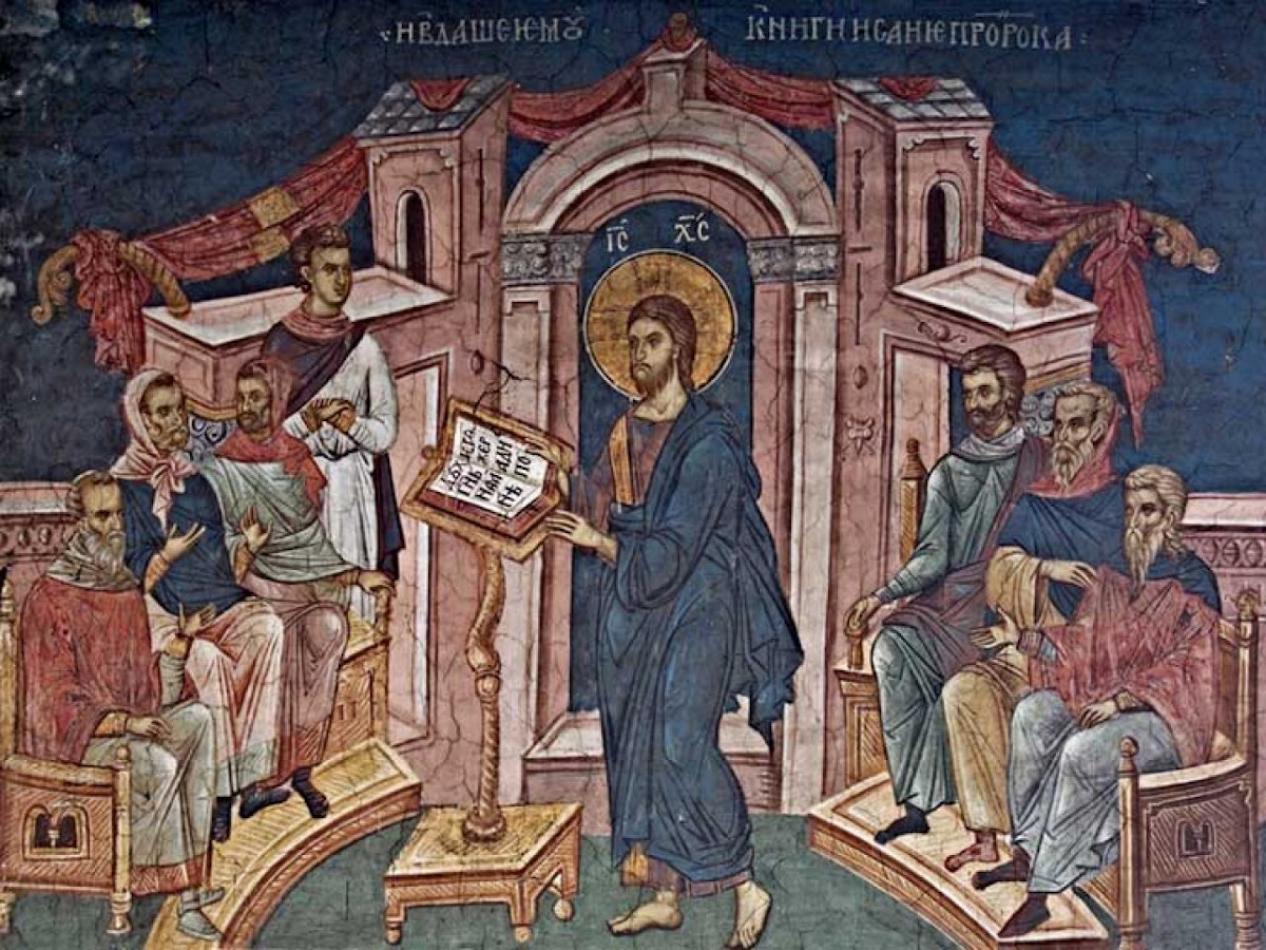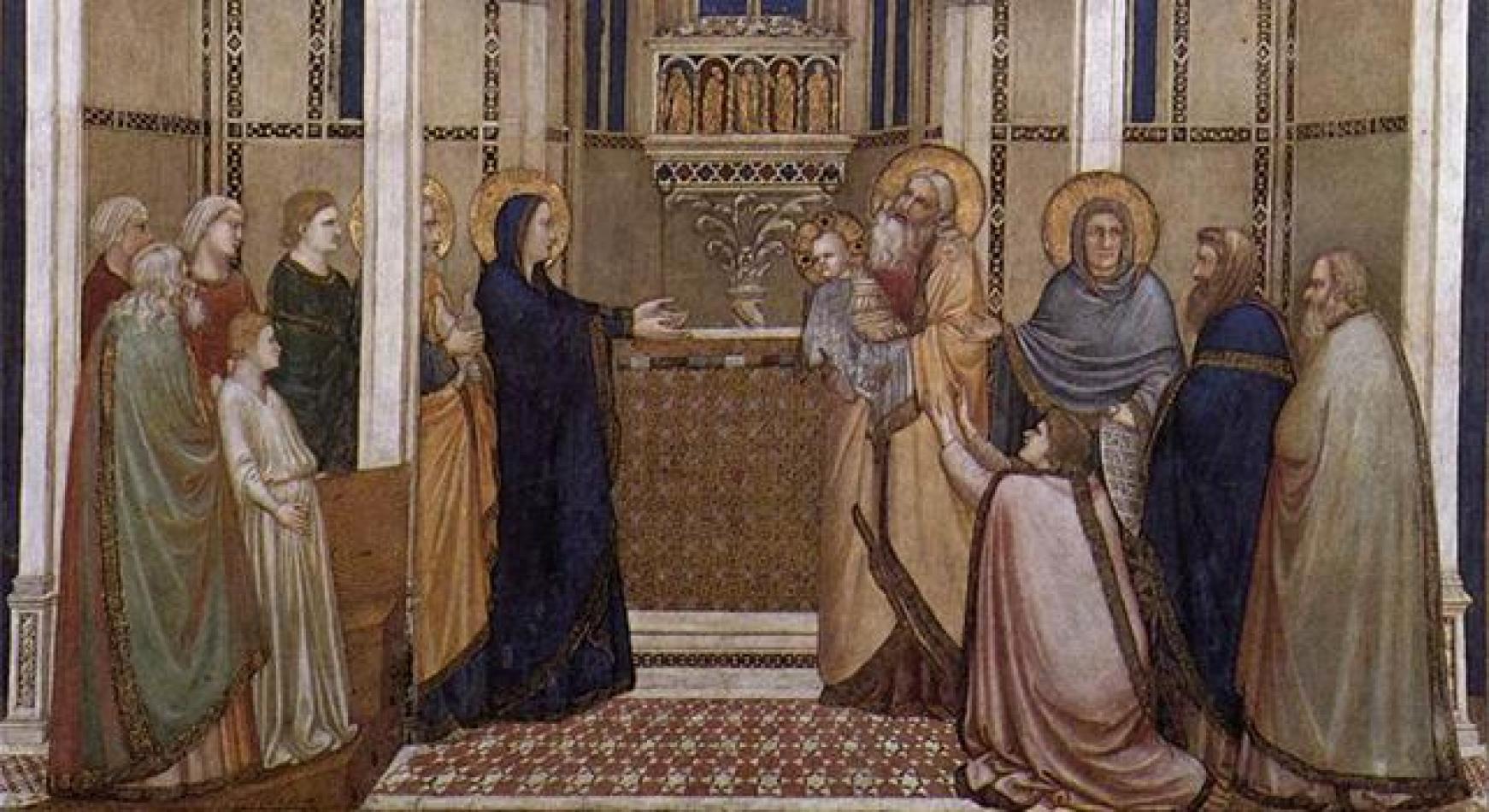Daniel Comboni
Comboni Missionaries
Institutional area
Other links
Newsletter
Mark shows Jesus as a travelling master, who, after some time in and out of villages and towns near to the Galilee Lake, goes back to Nazareth, where He grew up and where He was not accepted by his neighbours, because He was just one of them. Mark explains this refusal with the well-known sentence: “No prophet has ever been accepted by his own people and at home”. And he concludes saying that Jesus was astonished at their incredulity. [...]
God among the kitchen pots:
Jesus carpenter, son, brother, neighbour
A commentary on Mk 6, 1-5
Mark shows Jesus as a travelling master, who, after some time in and out of villages and towns near to the Galilee Lake, goes back to Nazareth, where He grew up and where He was not accepted by his neighbours, because He was just one of them. Mark explains this refusal with the well-known sentence: “No prophet has ever been accepted by his own people and at home”. And he concludes saying that Jesus was astonished at their incredulity. It seems to me that Jesus’ experience – his refusal by his own people- is quite common and on my view reflects two errors that very often we make:
1) We imagine God as someone far away from our everyday life.
It happens all the time in history and in all religions; many people think that God has to be looked for in extraordinary events: in wonderful places, big cathedrals, special sanctuaries, in a very important person, over the clouds…. As if God would have nothing to do with what we are and do in our simple and ordinary lives. But Jesus teaches exactly the opposite; He teaches that God becomes one of us (Emmanuel): He is born as a displaced person, works as a carpenter, goes to the synagogue every Saturday, drinks, eats, and makes friends… And in all that He is and acts as the loved Son of the Father.
One way to explain this experience of God’s presence in our ordinary life is the famous sentence by Saint Theresa of Avila: “God is also among the kitchen pots”. That’s it: Do not look for God in extraordinary events but in the simple facts of your everyday life: in the working place, in the family, in friendship, in the honest fight for justice and peace… Certainly also in the simple and sincere prayer (with not so many words or gesticulation)… “Among the kitchen pots”.
2) To let a heavy heart grow in us and become cynics and hard with our neighbours
There’s a saying that goes more or less like this: “the person with les respect within a temple is the one who works in it”… That may happen to all of us with the people we live with: the members of our family or community, co-workers, parish priest… Living near them, we are in danger of seeing only their limits and defects, overlooking the many good deeds that they probably are doing. So far from taking the opportunity of our nearness to love them and understand them, we end up in a hipper-critical attitude that makes it difficult for us to discover the message that God wants to give us through tem, in spite of their limits and defects. God will not come to us in the dress of a perfect person, but in the concrete reality of people around us.
As I meditate on this text form Mark, I pray to the Lord to acquire that humility that makes us able to recognize Jesus in the humble prophet of Nazareth and in the people that live with me and are for me a sign of God’s presence in my concrete reality, with its opportunities and problems, its rights and wrongs, its successes and failures.
Lord, do not allow me to become arrogant or cynic like the people of Nazareth. Let my heart be always open to acknowledge your humble presence around me, in spite of my own limits and the limits of others.
Fr. Antonio Villarino,
Comboni missionary
Bogotá
Mark 6, 1-6
REJECTED BY HIS OWN
by José Antonio Pagola
Jesus isn’t a Temple priest, busy about taking care of and promoting religion. Nor does anyone confuse him with a Teacher of the Law, dedicated to defend the Torah of Moses. The Galilean villagers see in his healing actions and in his words of fire the actions of a prophet moved by God’s Spirit.
Jesus knows that a difficult life of conflict awaits him. The religious leaders will confront him. It’s the destiny of every prophet. He doesn’t yet suspect that he will be rejected precisely by his own people, those who know him best from his childhood.
It seems that Jesus’ rejection in his village of Nazareth was often commented upon by early Christians. Three Gospel writers recount the episode in great detail. According to Mark, Jesus arrives at Nazareth accompanied by his disciples and with the reputation of being a prophetic healer. His neighbors don’t know what to think.
When the Sabbath arrives, Jesus enters into the small village synagogue and «begins to teach». His neighbors and relatives hardly listen to him. Within them all kinds of questions are arising. They know Jesus from childhood: he’s one more neighbor. Where has he learned that surprising message about God’s reign? From whom has he received that power to heal? Mark says that Jesus «had them upset». Why?
Those villagers believe that they know all about Jesus. They have an idea of him from his childhood. Instead of welcoming him as he presents himself before them, they get stuck by the image they have of him. That image keeps them from opening themselves up to the mystery that Jesus contains. They resist discovering that in him the saving God has drawn near.
But there’s something more. To receive him as a prophet means being ready to listen to the message he’s directing to them in God’s name. And this can lead to problems. They have their synagogue, their sacred books and their traditions. They live their religion in peace. Jesus’ prophetic presence can break the tranquility of their village.
We Christians have plenty of different images of Jesus. Not all of them coincide with the image of those who knew Jesus up close and followed him. Each one of us has our own idea of him. This image conditions our way of living our faith. If our image of Jesus is poor, partial or distorted, our faith will be poor, partial or distorted.
Why do we push ourselves so little to know Jesus?
Why does it scandalize us to recall his human features?
Why do we resist confessing that God has been made incarnate in a prophet?
Do we maybe sense that his prophetic life would oblige us to profoundly change our communities and our life?
José Antonio Pagola
Translator: Fr. Jay VonHandorf






